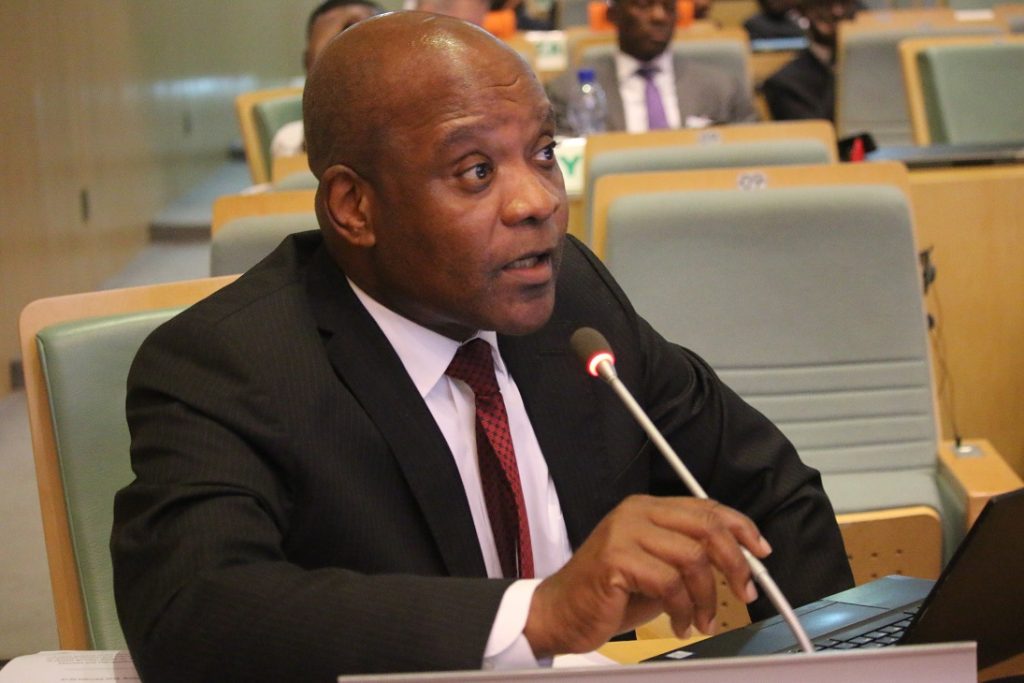‘There is a plan to vaccinate millions of Africans’
Since February 2020 when the first case of Covid-19 was reported in Africa, the Africa Centres for Disease Control and Prevention (Africa CDC) has been in overdrive coordinating a continent-wide response. One year since the outbreak, its director, JOHN NKENGASONG, speaks with UN’s Africa Renewal about successes and challenges, including the concerted efforts by African leaders to implement a vaccination campaign targeting 60 percent of Africans. These are excerpts:

Covid-19 was first reported in Africa about a year ago. What has Africa done right? And what have been the major challenges this past year?
First, as we speak, we have now about 3.5 million cases of Covid-19, with close to 90 000 deaths. That is very sobering. When we spoke last year [March 2020], deaths were still in the hundreds. Second, we are witnessing an aggressive second wave of the pandemic. The mortality is increasing. It is taking us only about 25 days to record 20 000 deaths. Last year, during the first wave, it took us several months to record that number.
So, what have we learned so far?
I think the power of coordination, the power of collaboration and the power of leadership across the continent has been very valuable. We are having a very disruptive pandemic, unlike HIV and Aids that does not stop people from traveling and doesn’t spread that fast. Globally, we have recorded about 100 million cases of Covid-19. It took us 40 years to record 80 million HIV infections.
What is the strategy for dealing with the new wave?
Two things: first, our prevention measures, which include mask wearing all the time and avoiding gathering in large numbers. Like other parts of the world, there’s prevention fatigue in Africa, and people are eager to live normal lives. But once you do that, you make it easy for the virus to spread.
I must add that we are concerned about the potential impact of the new variant on vaccine efficacy.
Many cases are disproportionately in a few countries. For example, South Africa accounts for about 40 percent of cases in Africa. Why is that?
Well, Covid-19 is transmitted from person to person. It’s not as though there’s something unique in South Africa; it’s just that if people are mobile and they congregate, they are exposed to the virus. So, we still need to look at demographic factors in a country like South Africa. Are places where people live in clusters more impacted? I don’t know. Only science will tell us. A basic concept of epidemiology is who is infected, where did the infection take place and how did it happen?
Last year, you said that Africa CDC was providing diagnostic equipment to countries, as well as training laboratory technicians. What impact did these have in countries?
A huge impact. When I spoke to you last year, we were ramping up diagnostic equipment across the continent and training people. Through the Pact initiative [Partnership to Accelerate Covid-19 Testing], we have distributed over 10 million tests across the continent—both the molecular and the antigen tests. All our members states can now conduct their own tests. So remarkable progress has been made, but remarkable challenges still remain.
When are Africans going to be vaccinated?
Morocco, Egypt, Seychelles have started vaccination and vaccines has arrived in South Africa. President Cyril Ramaphosa, in his capacity as Chair of the African Union, helped secure 270 million doses of vaccines. We are working hard through the Africa Medical Supplies Platform to distribute the vaccines. We hope that in the next two weeks or so, we’ll start vaccinating our healthcare workers, about three million of them.
We would have hoped to vaccinate the same time as in New York or London or Paris, but that is not the case. It takes logistics to put things together.
So, there is a continental strategy for vaccination; individual countries are not engaging in bilateral arrangements. Is that correct?
A continental strategy is what we call the whole-of-Africa approach, where we have three pillars: One is coordinating vaccine trials on the continent. The second is vaccine acquisition, which has led to the securing of 270 million doses. And the third is the Delivery Alliance that we have just established. The African Vaccine Acquisition Task Team [Avatt] is procuring the vaccines that will complement the Covax [a WHO and Gavi Vaccine Alliance initiative focused on fair and equitable access to Covid-19 vaccines] mechanism.
Keep in mind that our target is to vaccinate up to 60 per cent of our population. The Covax mechanism will provide about 27 percent of the vaccines, so we have a gap right there that the Avatt mechanism will try to fill.
We are developing guidelines on how to roll out vaccinations and countries will contextualize those guidelines according to their needs.





